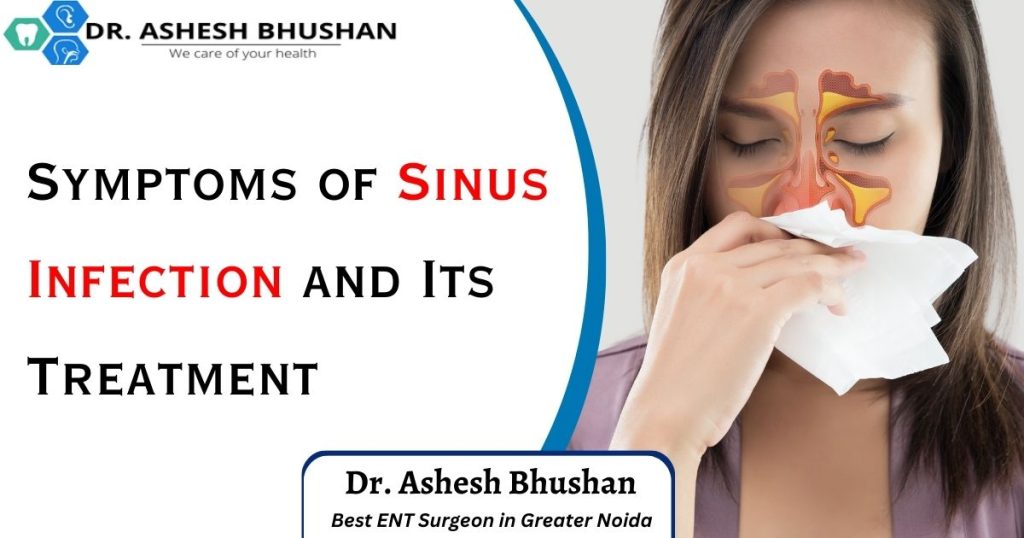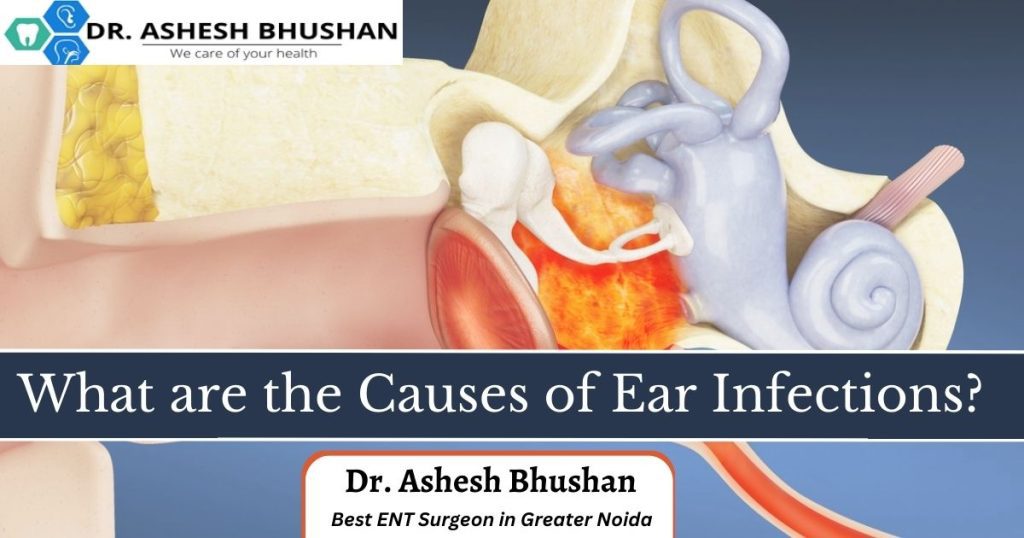Symptoms of Sinus Infection and Its Treatment
Sinus infections, also known as sinusitis, can be incredibly uncomfortable and disruptive to our daily lives. Understanding the symptoms and treatment options is crucial for timely intervention and relief. In this blog, we will delve into the world of sinus infections, exploring their symptoms and discussing effective treatment methods. If you are experiencing persistent symptoms, it is essential to consult an ENT specialist in Greater Noida, Dr. Ashesh Bhushan, for help. Symptoms of Sinus Infection 1. Nasal Congestion: One of the most common symptoms of a sinus infection is nasal congestion or a stuffy nose. You may experience difficulty breathing through your nose, leading to a feeling of heaviness and discomfort. 2. Facial Pressure: Sinusitis often manifests as facial pressure or pain around the cheeks, forehead, and eyes. The increased pressure in the sinuses can cause tenderness and throbbing sensations. 3. Sinus Headaches: Sinus infections can give rise to headaches that are typically felt in the front of the head, especially around the forehead and eyes. These headaches may worsen when you bend forward or lie down. 4. Thick Nasal Discharge: A yellowish or greenish nasal discharge is another common symptom of sinusitis. This discharge may be accompanied by post-nasal drip, which can cause throat irritation and coughing. 5. Reduced Sense of Smell and Taste: If you notice a diminished ability to smell or taste, it could be due to a sinus infection. The inflammation in the sinuses can affect your olfactory senses, resulting in a temporary loss of smell and taste. Effective Treatment for Sinus Infections 1. Nasal Irrigation: Nasal irrigation is a simple yet effective way to relieve sinus congestion. A saline solution or a nasal rinse can help flush out mucus and bacteria, providing temporary relief from symptoms. Regular irrigation can promote healing and prevent recurrent infections. 2. Decongestants: Over-the-counter decongestant sprays or oral medications can help reduce nasal congestion and alleviate sinus pressure. However, it is important to follow the recommended dosage and avoid prolonged use to prevent potential side effects. 3. Steam Inhalation: Inhaling steam can help soothe irritated sinuses and loosen mucus, providing relief from congestion. Add a few drops of eucalyptus or peppermint oil to enhance the effectiveness of steam inhalation. 4. Antibiotics: If your sinus infection is bacterial, your ENT specialist may prescribe antibiotics to eliminate the infection. 5. Sinus Surgery: In severe or chronic cases of sinusitis, sinus surgery may be recommended. Dr. Ashesh Bhushan, the best sinus surgeon in Greater Noida, specializes in advanced sinus surgical techniques to effectively treat persistent sinus infections. Surgical interventions aim to restore proper drainage and remove any obstructions in the sinuses, providing long-lasting relief. Consult An ENT Specialist To Get An Expert Care Sinus infections can significantly impact our quality of life, but with timely intervention and appropriate treatment, relief is possible. If you are experiencing symptoms of a sinus infection that persist for more than a week or worsen over time, it is crucial to consult the Best Sinus Surgeon in Greater Noida, Dr. Ashesh Bhushan. He is a trusted and experienced doctor who can provide accurate diagnoses and personalized treatment options tailored to your specific condition.
Symptoms of Sinus Infection and Its Treatment Read More »


